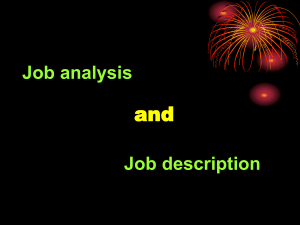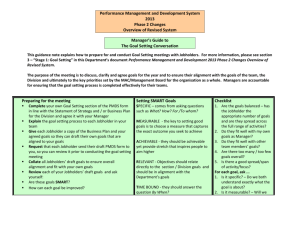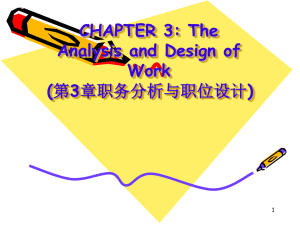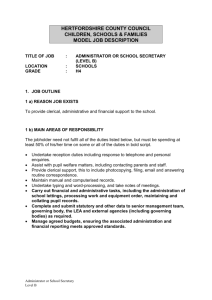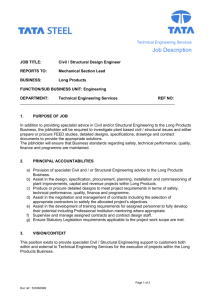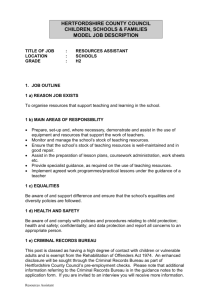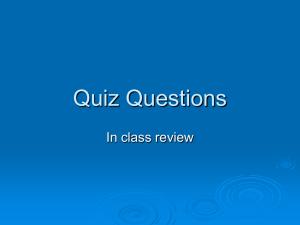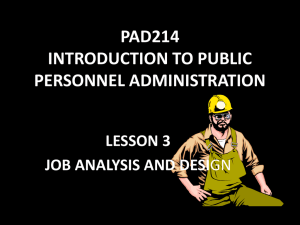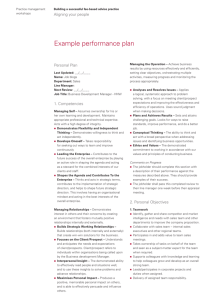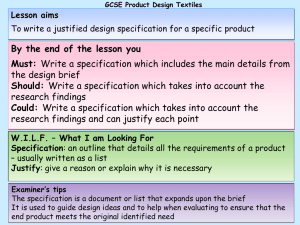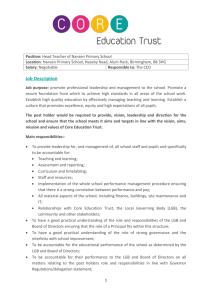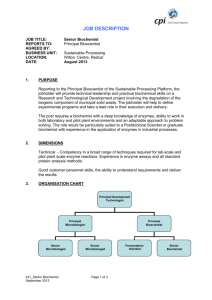File
advertisement
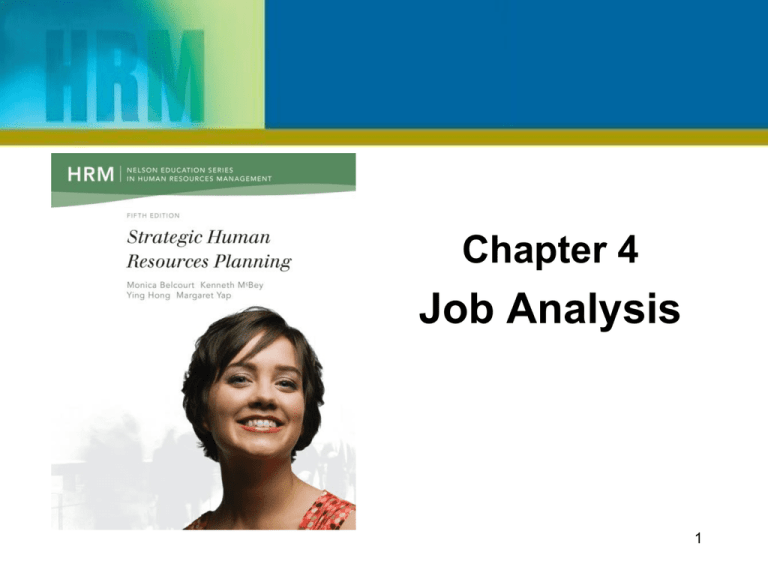
Chapter 4 Job Analysis 1 Learning Outcomes After reading this chapter, you should be able to: • Understand the central role played by job analysis in all HR activities, and especially in the effective conduct of HR planning • Comprehend the two essential elements of any job: methods and time standards • Explain common problems associated with the job analysis process • Identify the five steps of the job analysis process 2 Definitions Job: A grouping of related duties, tasks, and behaviours performed by one or more individuals, namely jobholders Positions: Refers to the number of individuals who are performing the duties, tasks, and behaviours required by a specific job 3 Definitions Job analysis: The analysis of subdivided work in the organization, both at the level of the individual job and for the entire flow of the production process • A job analysis will produce written outcomes (documents), including job descriptions and job specifications. 4 Definitions Job description: Outlines the duties or tasks to be carried out on the job Job specification: Outlines the competencies the jobholder must possess to be a successful performer in the specified job 5 ©Goodluz/Shutterstock Job Analysis Job analysis: An examination of the jobs in an organization that will document the KSAOs: 1. Knowledge (K) 2. Skill (S) 3. Ability (A) 4. Other attributes (O) 6 Compensable Factors 1. 2. 3. 4. Skills (technological experience) Effort (mental and physical) Responsibility (people, product, money) Working conditions 7 Scientific Management Examines two main aspects of each job in the organization: 1. Method employed: How the jobholder performs the job 2. Time measurement: The amount of time the jobholder requires to complete the task 8 Job Analysis and HR Planning • • Job analysis ensures that recent changes have been incorporated into job descriptions and specifications. Changes in technology, organizational structure and strategy, globalization, and in the external environment can affect core activities and how work is organized. 9 Job Analysis and HR Planning • With so many changes happening to organizations, job analysis must be a continuous activity. • Job analysis is a critical business practice to ensure legal compliance and also the foundation for effective talent management systems. 10 Problems Associated with Job Analysis 1. Job analysis that is neither updated nor reviewed 2. Job description or specification that is too vague 3. Contamination and deficiency 4. Time and costs of job analysis 11 Problems Associated with Job Analysis Deficiency: An error of omission when a job description or specification fails to incorporate important aspects of the job required for success Contamination: An error that occurs when unimportant or invalid behaviours or attributes are incorporated into a job description or specification 12 The Process of Job Analysis 1. Determine the job or process to be analyzed. 2. Determine methods and analyze the job or process. 3. Examine the recorded data on the job or process. 4. Define and formalize new methods and performance standards for the job or process. 5. Maintain new methods and performance standards for the job or process. 13 The Pros & Cons One of the common reasons advanced for not conducting job analysis is the substantial cost that can be associated with such an undertaking. Present a more balanced perspective by identifying both the various benefits of conducting job analyses and the incremental costs that may occur if the process is not instigated. Break into 2 groups: Take 15 mins. & pick 1 or 2 spokes persons To present Group 1 ~ What are the Benefits of job analysis Group 2 ~ The is downside to performing job analysis 14 What about Dejobbing? Dejobbing: Broadening responsibilities of a job Encouraging employee initiative 15 Internal factors leading to dejobbing – Flatter organizations – Work Teams External factors leading to dejobbing – – – – – – Rapid product and Technological change Global competition Deregulation Political instability Demographic changes Rise of the service economy 16
